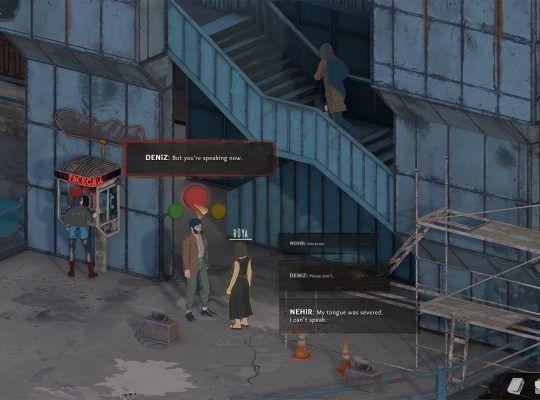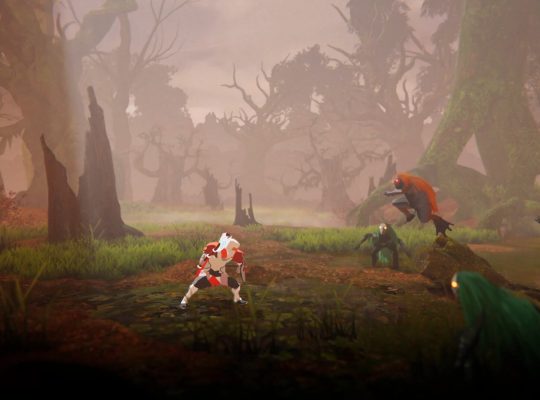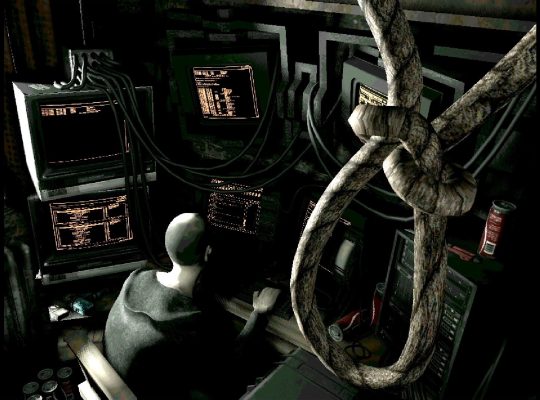The video game industry has undergone significant changes in the last ten years, in the sense that there is a constant increase in digital gaming and a gradual abandonment of physical copies. While the recent layoffs at Microsoft and the closing of the division responsible for physical distribution may cause concern among gamers, it is important to explore the broader implications and potential direction of the video game industry.
Digital games have been gaining in popularity for some time now. Publishers have encouraged players to adopt the digital versions by offering exclusive bonuses available only through online purchases. This is actually a good advantage for those who prefer to forego the accumulation of physical boxes in their homes. However, the mandatory transition to digital versions of games could prove to be a risky move.
For example, the latest versions of games for PlayStation and Xbox consoles come only in digital editions, that is, you get a box that doesn't contain a CD, but inside there is only a code to enter in one of the platforms. This is a more cost-effective option that allows gamers to give up on traditional discs and simply download games, and publishers themselves who don't have to spend extra on CDs or other accessories like figurines. This clear indication suggests that the console market is headed in that direction.
Ten years ago, Alan Wake was available in physical and limited collector's edition for the Xbox 360. However, ten years later, its long-awaited sequel, Alan Wake 2, which had the potential to become the game of the year in 2023, does not have a physical edition and can be bought only through the online platform. Similarly, Hellblade: Senua’s Sacrifice, originally released digitally for PlayStation 4 and PC in 2017, eventually received a physical release for PlayStation 4 and Xbox One a year later. However, the sequel, Hellblade 2, one of the most anticipated games of the year, will be exclusively available in digital format for Xbox.


Subscriptions everywhere
Casual players now have a plethora of choices at their fingertips. Subscriptions have flooded every gaming platform and allow access to thousands of games for a monthly fee, instead of spending at least 60-70 euros on each individual game. The only difference is that players can enjoy subscription-based games as long as the platform has a license to distribute them. This is similar to the model offered by streaming services such as Netflix, where users do not have to pay for each movie individually, but can watch it as long as it is available on the platform and as long as their subscription is active.
But the same problems that plagued the entertainment subscription market have now permeated the gaming industry. Instead of a single price for all content, we now have Xbox Game Pass, PlayStation Plus Extra, EA Play, Ubisoft+, Prime Gaming, Humble Choice, Nintendo Switch Online, and even Netflix games. This multitude of monthly subscriptions causes players to incur costs just to access a particular game on a platform they may not normally use. Remember when a single TV subscription was meant to avoid paying for individual channels in cable packages? With the current trend of multiple monthly subscriptions, the exact opposite has become the case, affecting the gaming industry as well.
It should be noted that just a few weeks ago, Philippe Tremblay, director of Ubisoft's subscription service, stated that players should embrace the idea of not owning their games: “We've noticed that players have gotten used to having ownership of their games. This is a shift in consumer behavior that needs to happen. People felt comfortable not physically owning their CD or DVD collections, i.e. everything became a subscription. It's a transformation that's happening a little more slowly in the gaming world. We should keep in mind that their progress will be saved if they decide to play the same game again in the future. It won't be deleted. So, it's about creating comfort in not owning your own game.”
Tremblay doesn't share the same sentiments about the situation and believes that digital gaming is the future we should be aiming for. He admits it can be a challenge to track subscriptions from various parties, but that's part of "the challenge we have as a subscription service and we embrace it."
The decline of physical releases for PC games can be attributed to several factors
We can ask ourselves why mostly consoles get their own physical editions, while for PC there is rarely any kind of collector's edition. With the rise of digital distribution platforms such as Steam, Epic Games Store and GOG, more and more gamers are opting for the convenience of downloading games directly to their PCs. Whereas, for example, console players do not have as many platforms for downloading games. In addition, almost every game will be released for PC, which is not always the case for consoles. Another main reason is the price, why would you spend twice as much for a game that costs so much less on another platform.
Historically, console gamers have shown a higher demand for physical editions and collector's items. Console gaming has often been associated with a broader demographic, including users who appreciate tangible collectibles and display items associated with their favorite games.
On the other hand, the production of physical copies involves production, packaging and distribution costs. Game developers and publishers find digital distribution more cost-effective because it eliminates these costs and allows for direct delivery to the consumer. Also, digital versions allow immediate access to games, that is, they eliminate the need to wait for physical deliveries. In addition, digital platforms allow for easy and quick updates and ensure that players always have the latest version of the game.


Digital purchases - useful for some, rejected by many
While digital shopping may seem like the most convenient option, it comes with a number of challenges. Collectors, who have been hoarding physical copies of games for years to build their libraries, have been hit the hardest. Displaying a full shelf of video games at home instills a sense of pride when there is no more room for extra boxes. However, digital purchases have their advantages. Buying a game online allows instant download on multiple devices with a reliable internet connection. No need to physically transfer the game. It also frees up space in your home. However, this does not mean that there are no disadvantages.
Firstly, there is a risk that the platform may pull the game without any warning. If there is a licensing issue between the platform and the publisher, the platform can simply revoke your access to the game, with no refund. Ownership of the digital product for which you have paid full price under such circumstances becomes limited. Secondly, you are forced to make digital purchases. Physical editions have more value because you can resell them after you're done playing. There is a significant secondary market for video games, allowing players to get some of their money back or trade games for others. In the case of digital versions, everyone is forced to buy their own copy.
Are key vendors influencing digital gaming?
Key sellers, also known as third-party resellers, are platforms that sell digital game keys at prices that are often lower than those offered by official digital distribution platforms. These keys are usually acquired through various means, such as bulk purchases, regional price differences, or unauthorized methods.
The legitimacy of keys sold by third-party resellers may be questionable, or problems such as fraud, refunds or even revocation of illegitimate keys by game developers or publishers may occur. This presents a challenge for both players and the gaming industry. Developers and publishers may experience a loss of revenue when consumers choose to purchase games from these sellers instead of official platforms. This loss of revenue can affect developers' ability to invest in future projects or support existing games. That being said, yes, they do affect digital gaming.
While digital games are becoming more ubiquitous and shaping the world of video games, we cannot ignore the rapid disappearance of physical versions of games. Digital distribution provides players with convenience, instant access, and often better prices, but with that comes certain drawbacks. Losing physical copies means losing the ability to collect, share games among friends, and physically touch the material. Despite the benefits of digital games, there are also concerns about loss of control over ownership and the possibility of resale. Also, the disappearance of physical editions can negatively affect retail chains, relationships with collectors and the traditional gaming experience. It is therefore important that the industry maintains a balance between technological innovation and preserving the value of traditional gaming experiences.









